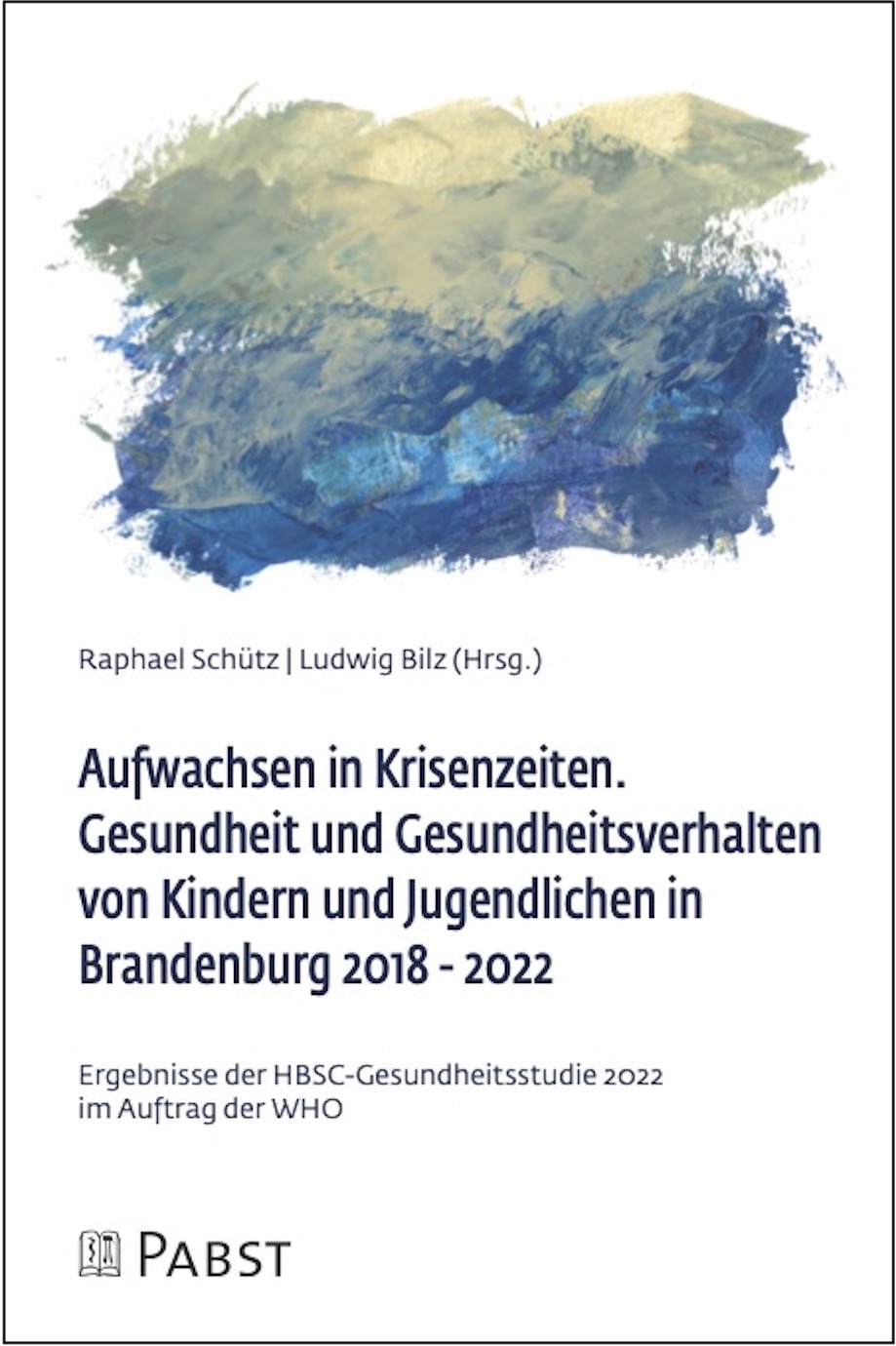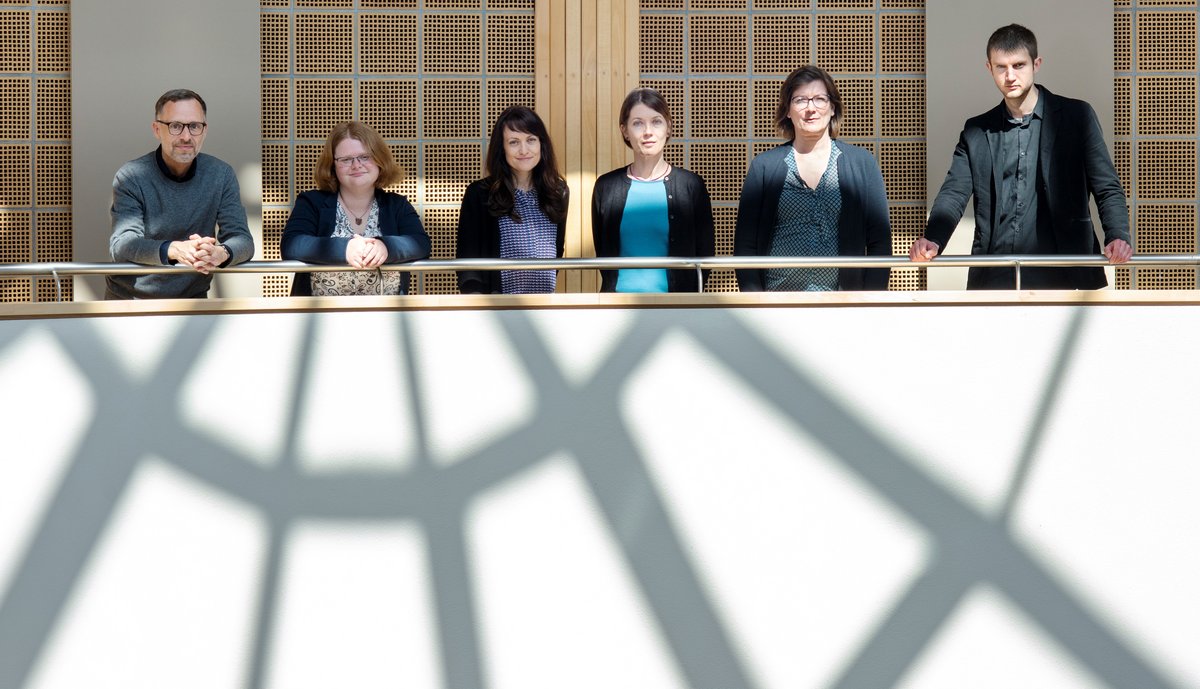Poorer health of children and adolescents in Brandenburg in times of global crises
In the last four years, which have been marked by global crises such as the Corona pandemic, the Ukraine war and the energy crisis, the health of Brandenburg's children and young people has subjectively deteriorated. This is the result of the second so-called HBSC study ("Health Behavior in School-aged Children"), which is now being published. Between April and July 2022, a total of 3,801 students from grades 5, 7 and 9 at 87 general education schools in the state of Brandenburg were surveyed about their health.
Like the first edition in 2018, the survey is a joint project of the Ministry ofHealth and the Ministry of Education with AOK Nordost and the Brandenburg University of Technology (BTU) Cottbus-Senftenberg.
The first HBSC survey, representative for Brandenburg, was conducted in 2018 among more than 3,000 students at 55 Brandenburg schools. For the second survey, the BTU, again under the project leadership of Prof. Dr. Ludwig Bilz, asked the students about the following topics:
- Subjective general health and physical and mental health,
- Physical activity, nutrition and social risk behavior,
- dental hygiene,
- substance use,
- Sexual behavior,
- Health behaviors related to COVID-19,
- Social media consumption,
- Family and social situation and circle of friends,
- School or school climate,
- own health literacy.
Compared to 2018, the current results show a deterioration in children's and adolescents' health self-assessment in many areas. However, the four years between the two surveys have also been marked by crisis-related developments. These include not only a global pandemic, but also a war in Europe and the accompanying economic and social impacts. The survey data is evidence that the last four years have also been challenging for children and adolescents in Brandenburg, leaving physical as well as mental scars.
Health
Although the majority of Brandenburg students still rate their own health as excellent or good, the figure is 84 percent, about five percentage points lower than in 2018. An even more pronounced deterioration can be seen in the area of mental health. Four years ago, 31 percent of respondents reported multiple psychosomatic complaints several times a week, but this figure has now risen to 42 percent. The number of children and adolescents suffering from depressive symptoms or feelings of loneliness has also increased. Girls, older adolescents and adolescents with non-binary gender identity are particularly frequently affected in each case. In addition, mental health problems occur more frequently in high schools and special schools and among children from financially worse-off families. Similar trends have already been identified in the Brandenburg replication of the COPSY study (COrona&PSYche) for the survey year 2021.
Corona Pandemic
Exactly two-thirds of children and adolescents in Brandenburg (66.6 percent) reported having already been infected with the Corona virus (as of summer 2022). Accordingly, not quite half of the respondents (46 percent) have been vaccinated against the Corona virus, with significantly more children and adolescents from families with higher levels of affluence having been vaccinated than from families with lower levels of affluence. Health protection requirements, such as wearing face masks, were followed by the vast majority of respondents.
Health behavior
There was a slight positive trend in physical activity behavior. While only 14.2 percent of Brandenburg's children and adolescents achieved the 60 minutes of daily physical activity recommended by the World Health Organization (WHO) in 2018, this proportion increased by four percentage points. However, in view of the correlation between physical (in)activity and cardiovascular diseases, obesity, mental illnesses and limitations in school performance, this is still clearly too low. Promoting sports and physical activity will therefore remain an important prevention issue in the future. A clearly negative trend can be observed in nutritional behavior. Only just under half of the children and young people stated that they eat breakfast every day. In 2018, this figure was still around 62 percent. Fruit is consumed daily by 47 percent of respondents, and vegetables by 32 percent.
Addictive behavior
For the addictive substances tobacco, alcohol and cannabis, the available data also show unfavorable trends: The proportion of children and adolescents who reported having smoked at least once in the past 30 days rose from eight to twelve percent within four years. On a daily basis, 3.2 percent of respondents smoked (2018: 2.2 percent). At least one alcohol binge in the past 30 days was reported by 13 percent of children and adolescents. In 2018, that number was seven percent. The 9th graders were also asked about their drug use. The number of youth who used cannabis at least once in the past 30 days remained relatively constant at 11 percent. In contrast, the proportion of those who used cannabis on ten or more days doubled from two to four percent.
Social behavior
The negative changes in social behavior are striking. 10 percent of respondents reported experiences with fights - that is three percentage points more than four years ago. Bullying was experienced by 13 percent of children and young people (2018: nine percent). The proportion of those who admitted to having been bullied themselves more than doubled compared to 2018, from four to nine percent. Cyberbullying in particular plays a major role in this context. For example, the proportion of children and young people who have been affected by cyberbullying has more than tripled since 2018, from two to seven percent.
Social media
The fact that online activities are associated with health risks for some children and young people is also evident in the analysis of problematic patterns of social media consumption. Approximately ten percent of respondents, four percentage points more than in 2018, reported consuming social media to an extent that suggests addiction-like behavior.
Conclusion
As was the case four years ago, the 2022 data show for nearly all indicators that problematic health-related behaviors are more prevalent in remedial and high schools and among children and adolescents from families with lower wealth. Literally, the study states, "From a public health perspective, it is primarily the widely confirmed negative effects on mental health that should prompt action." In the preventive field, therefore, increased efforts by society as a whole are needed to cushion the negative health consequences of the crises of recent years and to strengthen the health of children and adolescents.
Background
The international study on child and adolescent health "Health Behavior in School-aged Children" (HBSC) is the world's largest study on child and adolescent health. It is conducted every four years in 45 countries and has been supported by the World Health Organization (WHO) for almost 40 years. It is one of the most important data bases for international comparative health reporting on children and adolescents. Germany has participated in the HBSC study with country samples since 1993/1994 and also organized a nationwide survey for the first time in 2009/2010.
Further information:
- The results report of the Brandenburg HBSC study will be published by Pabst Science Publishers and can be downloaded free of charge at this link: https://tinyurl.com/hbscbrandenburg2022
Specialist contact
Pädagogische Psychologie in Gesundheitsberufen
T +49 (0) 3573 85-720
ludwig.bilz(at)b-tu.de



